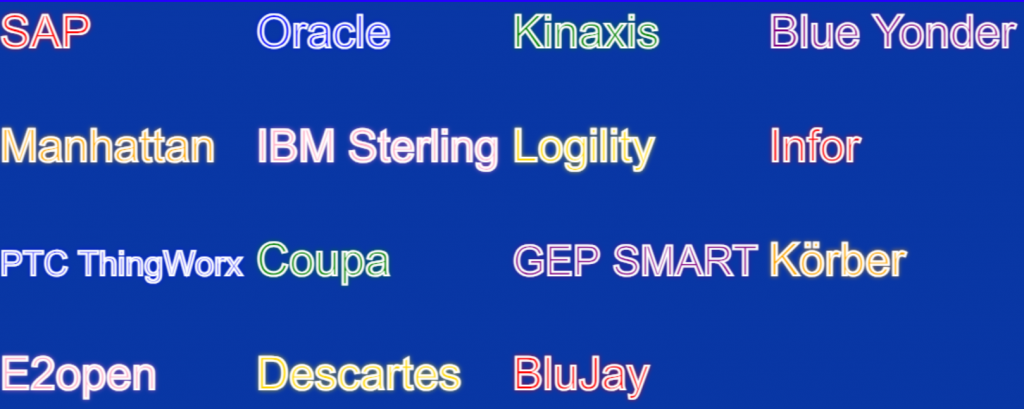
What is supply chain management?
Supply chain management (SCM) is the strategic planning and coordination of all activities involved in sourcing, procurement, conversion, and logistics to ensure that goods and services are efficiently delivered from suppliers to customers. It encompasses the entire lifecycle of a product, from its initial creation and procurement of raw materials to manufacturing, distribution, and eventual consumption by end-users.
Key components of supply chain management include:
- Planning: This involves demand forecasting, production planning, and inventory management to ensure that products are available when and where they are needed while minimizing excess inventory.
- Sourcing: Identifying and selecting suppliers, negotiating contracts, and managing relationships with suppliers to secure the necessary materials or services at the right quality and cost.
- Manufacturing: Managing the production process efficiently to meet demand, optimize resources, and ensure product quality.
- Logistics: Handling the transportation and distribution of goods, including selecting the best shipping methods, managing warehouses, and optimizing the flow of products to customers.
- Inventory Management: Balancing the need for adequate stock levels with the desire to minimize excess inventory and carrying costs.
- Demand Management: Understanding customer demand patterns and aligning supply chain processes to meet changing demand effectively.
- Information Systems: Implementing technology and systems, such as Enterprise Resource Planning (ERP) and Advanced Planning Systems (APS), to support data visibility, decision-making, and communication across the supply chain.
- Risk Management: Identifying and mitigating risks that could disrupt the supply chain, such as supplier issues, natural disasters, geopolitical events, or economic fluctuations.
Why we need supply chain management Software
We need supply chain management software because supply chains are becoming increasingly complex and globalized. This makes it difficult for businesses to track and manage all of the moving parts involved in getting their products from the raw materials stage to the customer.
Supply chain management software can help businesses to:
- Improve visibility and control over their supply chains: Supply chain management software can provide businesses with a real-time view of their inventory levels, order status, and shipments. This information can help businesses to identify and address potential problems early on.
- Reduce costs: Supply chain management software can help businesses to reduce costs by optimizing their inventory levels, transportation plans, and other aspects of their supply chains.
- Improve customer service: Supply chain management software can help businesses to improve customer service by ensuring that orders are delivered on time and in full.
- Increase agility: Supply chain management software can help businesses to be more agile in the face of unexpected disruptions, such as natural disasters or supplier delays.
Here are some specific examples of how supply chain management software can be used:
- A retailer can use supply chain management software to track inventory levels at all of its stores and warehouses. This information can then be used to generate demand forecasts and optimize transportation plans.
- A manufacturer can use supply chain management software to track the movement of raw materials and finished goods through its factories. This information can be used to identify and address potential bottlenecks in the production process.
- A logistics provider can use supply chain management software to track the movement of goods from their warehouses to their customers. This information can be used to optimize delivery routes and ensure that shipments are delivered on time.
Feature of supply chain management Software?
Supply chain management (SCM) software offers a wide range of features and capabilities to help businesses optimize their supply chain processes, improve efficiency, and enhance visibility. Here are some common features of SCM software:
- Inventory Management: SCM software helps in tracking and managing inventory levels, optimizing stock levels, and ensuring products are available when needed without excess inventory costs.
- Demand Forecasting: It uses historical data and predictive analytics to forecast demand accurately, helping businesses plan production, procurement, and distribution more efficiently.
- Order Processing: It automates the order-to-cash process, streamlining order entry, order fulfillment, and invoicing to reduce errors and improve order accuracy.
- Supplier Management: SCM software assists in managing supplier relationships, assessing supplier performance, and optimizing the procurement process to ensure a stable supply of materials.
- Warehouse Management: It helps optimize warehouse operations, including storage, picking, packing, and shipping, to minimize handling costs and improve order accuracy.
- Transportation Management: SCM software provides tools for optimizing transportation routes, carrier selection, and tracking shipments to reduce shipping costs and delivery times.
- Production Planning: It assists in scheduling and managing production processes, balancing capacity and demand, and ensuring efficient utilization of resources.
- Quality Control: SCM software can include quality control and inspection features to monitor and maintain product quality throughout the supply chain.
- Supplier Collaboration: It enables real-time collaboration with suppliers, allowing for better communication, visibility into supplier performance, and faster issue resolution.
- Analytics and Reporting: SCM software provides data analytics and reporting tools to gain insights into supply chain performance, identify areas for improvement, and make data-driven decisions.
- Compliance and Traceability: It helps ensure compliance with regulatory requirements and provides traceability of products throughout the supply chain for quality control and recalls.
- Integration Capabilities: Many SCM systems offer integration with other enterprise systems, such as ERP (Enterprise Resource Planning) and CRM (Customer Relationship Management), to facilitate data sharing and streamline processes.
- Multi-Channel Support: For businesses with multiple sales channels, SCM software can handle orders from various sources, including e-commerce websites, brick-and-mortar stores, and third-party marketplaces.
- Real-Time Visibility: SCM software provides real-time visibility into inventory levels, order status, and shipment tracking, allowing for better decision-making and responsiveness.
- Supply Chain Collaboration: It facilitates collaboration among various stakeholders in the supply chain, including suppliers, manufacturers, distributors, and customers.
- Mobile Accessibility: Many modern SCM solutions offer mobile apps or web-based access, allowing users to manage supply chain operations from anywhere.
- Security and Compliance: SCM software includes security features to protect sensitive supply chain data and ensure compliance with data protection regulations.
Most Popular supply chain management Software

- SAP Integrated Business Planning (IBP): SAP IBP is a comprehensive supply chain planning solution that integrates demand, inventory, and supply planning. It offers advanced analytics and cloud-based collaboration features.
- Oracle SCM Cloud: Oracle offers a suite of cloud-based SCM applications that cover various aspects of supply chain management, including procurement, inventory, and order management.
- Kinaxis RapidResponse: Kinaxis provides a supply chain planning and response solution known for its real-time visibility, scenario analysis, and collaborative capabilities.
- JDA Software (now Blue Yonder): JDA offers a range of supply chain planning and execution solutions, including demand planning, inventory optimization, and transportation management.
- Manhattan Associates: Manhattan Associates offers a suite of supply chain and omnichannel commerce solutions, including warehouse management and transportation management systems.
- IBM Sterling Supply Chain Suite: IBM’s Sterling Supply Chain Suite provides a set of integrated solutions for managing supply chain processes, including order management, inventory optimization, and blockchain-based traceability.
- Logility: Logility offers supply chain optimization software with features for demand forecasting, inventory optimization, and advanced analytics.
- Infor Supply Chain Planning: Infor provides supply chain planning solutions that cover demand planning, production scheduling, and supply chain visibility.
- PTC ThingWorx: PTC’s ThingWorx platform includes IoT capabilities that can be integrated into supply chain processes to provide real-time visibility and monitoring.
- LLamasoft (now part of Coupa): LLamasoft offers supply chain modeling and analytics software to help businesses optimize their supply chain networks.
- GEP SMART: GEP SMART is a procurement and supply chain management platform that offers features for sourcing, contract management, and supplier collaboration.
- HighJump (now part of Körber): HighJump provides supply chain solutions, including warehouse management systems and transportation management systems.
- E2open: E2open offers a digital supply chain platform with features for demand sensing, inventory management, and collaborative planning.
- Descartes Systems Group: Descartes provides logistics and supply chain solutions, including transportation management and global trade compliance.
- BluJay Solutions: BluJay Solutions offers a range of supply chain and logistics software, including transportation management and customs compliance.
Supply Chain Management Software Market Prediction
The global supply chain management (SCM) software market is poised for substantial growth in the coming years. As of 2023, the market is valued at approximately USD 21.93 billion and is projected to grow at a compound annual growth rate (CAGR) of 15.4% through 2032, potentially reaching around USD 79.45 billion (Expert Market Research).
Regionally, North America holds a significant market share, supported by the presence of major SCM software manufacturers and extensive implementation across various industries like transportation, logistics, and retail. Europe and Asia Pacific also show robust growth, driven by the manufacturing sector and rising e-commerce adoption, respectively (Expert Market Research).
I’m a DevOps/SRE/DevSecOps/Cloud Expert passionate about sharing knowledge and experiences. I am working at Cotocus. I blog tech insights at DevOps School, travel stories at Holiday Landmark, stock market tips at Stocks Mantra, health and fitness guidance at My Medic Plus, product reviews at I reviewed , and SEO strategies at Wizbrand.
Please find my social handles as below;
Rajesh Kumar Personal Website
Rajesh Kumar at YOUTUBE
Rajesh Kumar at INSTAGRAM
Rajesh Kumar at X
Rajesh Kumar at FACEBOOK
Rajesh Kumar at LINKEDIN
Rajesh Kumar at PINTEREST
Rajesh Kumar at QUORA
Rajesh Kumar at WIZBRAND

 Starting: 1st of Every Month
Starting: 1st of Every Month  +91 8409492687
+91 8409492687  Contact@DevOpsSchool.com
Contact@DevOpsSchool.com
